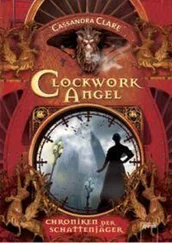ALL THE LITTLE GODS WE ARE
by John Grant
It is an easy enough mistake to make—the most natural mistake in the world.
It’s late on a Thursday afternoon and, although the air is cool in the library, the day is hot enough outside that even just the sunlight roaring in through the windows is enough to put thoughts in mind of darkened bars and long cold beers, condensation silvering the outside of the glass… You know the kind of day, surely. The kind of day on which, when there’s just over an hour before you’ll be free to go home or at least away from here, you think it’d be a good idea to phone up one of your unmarried friends and suggest getting together after work to sink a few.
In my case the friend in question is called Bill, and that’s exactly what I do.
Bill lives only a few blocks away from where I live, in a similarly solitary apartment. His bachelorhood expresses itself in what I would describe as a near-obsessive neatness and a near-compulsive shedding of unnecessary possessions, so that his apartment is always full of space, shining surfaces, emptiness. My own bachelorhood manifests instead in the form of clutter: top-heavy heaps of books on the shelves and floor, CDs scattered everywhere, ashtrays and waste baskets and kitchen sink brimming with all my claims to a productive life. But his wide open spaces and my lack of them are both symptomatic of the same thing: while neither of us is short of friends and acquaintances, neither of our lives is very long co-tenanted by another. His life has occasional lodgers, if you will, who stay a night or three and leave a smell of eau de cologne in the rooms until Bill manages to scrub the air molecules clean of it. My own is shared by myself alone, not so much by deliberate choice as through a lack of inclination to have it otherwise.
Because his apartment isn’t far from mine, our telephone numbers have the same local code, and indeed the same first five digits, differing only in the last two.
The day has been long and hot, the borrowers have been unusually annoying in their demands (“Are you sure that’s the right version of Pride and Prejudice ? The one my friend’s been reading has a grey cover, not a blue one”), a teacher from the local junior school brought in a bunch of the kids to show them how to use the Dewey Decimal System, and so on, and so on. Just to add to my irritation is the thought that Bill, as a freelance copywriter, is able to work at home and avoid all this; probably the reason he chose that profession, in fact, so that he wouldn’t be troubled by the clutter of other people .
No wonder, then, that, as I turn my head away from Mrs. Baldeen at the lending counter in case she thinks I’m calling a friend to suggest going out for a beer, the number I stab out on the pad in front of me isn’t Bill’s, but my own.
I realize my error almost as soon as I’ve made it. If I were in a call-box I’d hang up, but I’m aware of the vigilant eye of Mrs. Baldeen so I stay on the line, thinking I’ll leave some jokey message on my answerphone when it cuts in after the fourth ring, and then I’ll dial again.
Except that my call never gets as far as the fourth ring, because on the second ring someone picks up.
“Hello,” says a man’s voice.
For a moment I assume that not only have I dialed the wrong person’s number—my own rather than Bill’s—but I’ve managed to dial the number wrong as well.
“I’m sorry,” I start. “I seem to have…”
The voice—the, now I think about it, very familiar voice—overrides my words. “John Sudmore here.”
Which of course stalls whatever it was I was going to say, because I’m John Sudmore.
Psychologists have a term I can never remember for the type of unconscious censorship our brains practice. When confronted by something we “know” to be “impossible,” we either refuse to perceive it at all or we instantly conjure up some byzantine explanation for it that, no matter how implausibly complicated, seems somehow more commonsensical. It’s the latter that happens to me in this instance.
“What a strange coincidence,” I say as soon as my tongue and lips start working again. “My name’s John Sudmore, too. I didn’t realize there were two of us here in Lampitt.”
I chuckle with self-conscious naturalism.
“Is this some kind of telemarketing stunt?” says the other John Sudmore. He sounds suspicious, but more interested than displeased.
“No, it’s not,” I assure him. “I’ve dialed the wrong number. I was meaning to call a friend of mine and I made a mistake. Silly of me.” I know I’m beginning to burble. I don’t have to look at Mrs. Baldeen to know that I’ve kindled her attention. “I must have dialed Bill’s number a thousand times, but… or maybe it’s a foulup in the network, not my fault at all.”
It’s not enough to assuage the other John Sudmore’s suspicions. “You’re not trying to sell me anything?”
I’m just about to answer this when down the line I hear an infant wail in the background. Then there’s that distinctive sound of someone moving the telephone receiver away from their face to couch it on their shoulder.
“Hey, Jus!” calls the other John Sudmore. “Can you get Maggie to cool it? I’m trying to speak on the phone here. Some fruitcake, I think, but…”
There’s a response from the distance. I’m not able to make out many of the words the woman says, but I gather the unseen child Maggie has bumped her knee on the table-leg. This is not what makes my body tense up, however.
And now the crazy theory my mind desperately constructed to explain how there could be another John Sudmore living in Lampitt—even though I knew there wasn’t, because in a town this size we’d already have been aware of each other—and how his voice could, by coincidence, be so like my own, and how our telephone numbers might be almost the same, and how… This house of cards I’ve built out of steadily more improbable coincidences comes tumbling down.
What shocks me out of that fool’s dream is that I recognize the woman’s voice, too.
And her name.
Jus.
Short for Justine.
Justine Parland.
I could credit the existence of another John Sudmore, even if it meant twisting my mind around to believe something I knew to be untrue, but I cannot accept that he might have married Jus Parland.
* * *
I throw my mind back twenty years—no, let me see, it must be twenty-one.
I was fifteen when a new girl arrived in the school. Her family had just moved the thirty miles out of Manhattan to live in Lampitt. Her dad, Mr. Parland, would still commute into town every weekday to where he worked as a stockbroker or something infinitely tedious like that, but Justine and her mom and her quite maddening kid brother David would enjoy the benefits of living in semi-rural Jersey while, incidentally, Mr. Parland would pay about half the mortgage for a sprawling five-bedroomed house in four acres that he’d been paying for a cramped apartment on 48th Street.
I discovered all of this and quite a lot more because Jus—she soon told me she preferred the contraction to her full name—because Jus and I were seated next to each other in her first class, which happened to be math, and I made a point of welcoming her to the school as we packed up our books to move on to literature. I was very shy back then—still am, although meeting so many of the public every day in the library has gone some way towards curing my timidity—and in the normal course my reticence would probably have won out, but I conquered it and spoke to her, smiled even, because during the math class I’d been taking occasional peeks at her face as she leaned forward, earnestly taking notes, and during those glances I’d grown up a little.
Читать дальше












